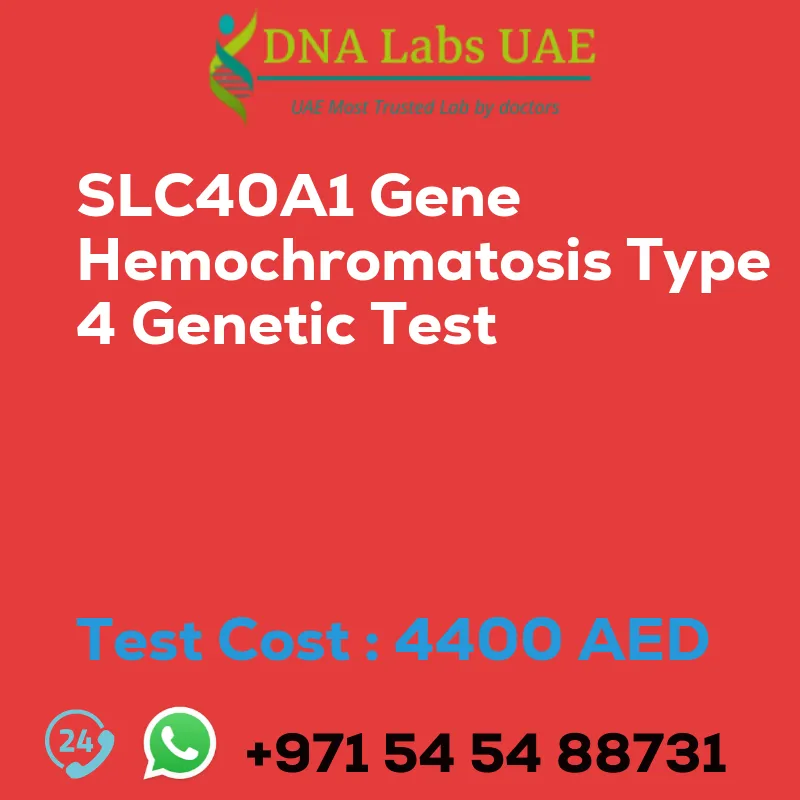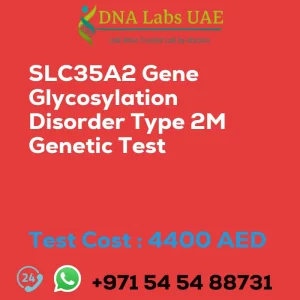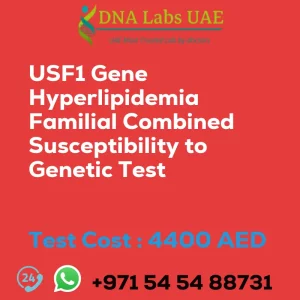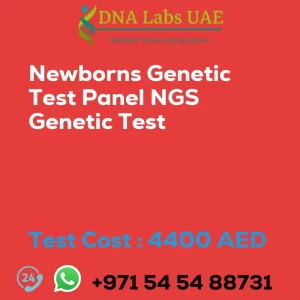SLC40A1 Gene Hemochromatosis type 4 Genetic Test
Test Name: SLC40A1 Gene Hemochromatosis type 4 Genetic Test
Components: Blood or Extracted DNA or One drop Blood on FTA Card
Price: 4400.0 AED
Report Delivery: 3 to 4 Weeks
Method: NGS Technology
Test type: Metabolic Disorders
Doctor: General Physician
Test Department: Genetics
Pre Test Information: Clinical History of Patient who is going for SLC40A1 Gene Hemochromatosis type 4 NGS Genetic DNA Test. A Genetic Counselling session to draw a pedigree chart of family members affected with Hemochromatosis type 4.
Test Details: The SLC40A1 gene is responsible for encoding a protein called ferroportin, which is involved in the transport of iron out of cells. Mutations in the SLC40A1 gene can lead to a condition called hemochromatosis type 4, which is a rare form of hereditary hemochromatosis. Hemochromatosis is a disorder characterized by the accumulation of excess iron in the body. In hemochromatosis type 4, mutations in the SLC40A1 gene disrupt the normal function of ferroportin, leading to impaired iron transport and increased iron absorption from the diet. This results in the gradual accumulation of iron in various organs and tissues, including the liver, heart, pancreas, and joints.
NGS (Next-Generation Sequencing) genetic testing is a technique used to sequence multiple genes simultaneously, allowing for the identification of mutations or variations in the SLC40A1 gene associated with hemochromatosis type 4. This type of genetic test can help diagnose individuals with suspected hereditary hemochromatosis and provide information about the specific genetic variant causing the condition.
Genetic testing for hemochromatosis type 4 can be useful for confirming a diagnosis, predicting the risk of developing iron overload-related complications, and guiding treatment strategies. It can also be valuable for identifying at-risk family members who may benefit from early intervention or preventive measures.
It is important to note that genetic testing for hemochromatosis type 4 should be performed and interpreted by a qualified healthcare professional or genetic counselor. They can provide guidance on the implications of test results, discuss treatment options, and offer appropriate genetic counseling to individuals and families affected by this condition.
| Test Name | SLC40A1 Gene Hemochromatosis type 4 Genetic Test |
|---|---|
| Components | |
| Price | 4400.0 AED |
| Sample Condition | Blood or Extracted DNA or One drop Blood on FTA Card |
| Report Delivery | 3 to 4 Weeks |
| Method | NGS Technology |
| Test type | Metabolic Disorders |
| Doctor | General Physician |
| Test Department: | Genetics |
| Pre Test Information | Clinical History of Patient who is going for SLC40A1 Gene Hemochromatosis type 4 NGS Genetic DNA Test A Genetic Counselling session to draw a pedigree chart of family members affected with Hemochromatosis type 4 |
| Test Details |
The SLC40A1 gene is responsible for encoding a protein called ferroportin, which is involved in the transport of iron out of cells. Mutations in the SLC40A1 gene can lead to a condition called hemochromatosis type 4, which is a rare form of hereditary hemochromatosis. Hemochromatosis is a disorder characterized by the accumulation of excess iron in the body. In hemochromatosis type 4, mutations in the SLC40A1 gene disrupt the normal function of ferroportin, leading to impaired iron transport and increased iron absorption from the diet. This results in the gradual accumulation of iron in various organs and tissues, including the liver, heart, pancreas, and joints. NGS (Next-Generation Sequencing) genetic testing is a technique used to sequence multiple genes simultaneously, allowing for the identification of mutations or variations in the SLC40A1 gene associated with hemochromatosis type 4. This type of genetic test can help diagnose individuals with suspected hereditary hemochromatosis and provide information about the specific genetic variant causing the condition. Genetic testing for hemochromatosis type 4 can be useful for confirming a diagnosis, predicting the risk of developing iron overload-related complications, and guiding treatment strategies. It can also be valuable for identifying at-risk family members who may benefit from early intervention or preventive measures. It is important to note that genetic testing for hemochromatosis type 4 should be performed and interpreted by a qualified healthcare professional or genetic counselor. They can provide guidance on the implications of test results, discuss treatment options, and offer appropriate genetic counseling to individuals and families affected by this condition. |








